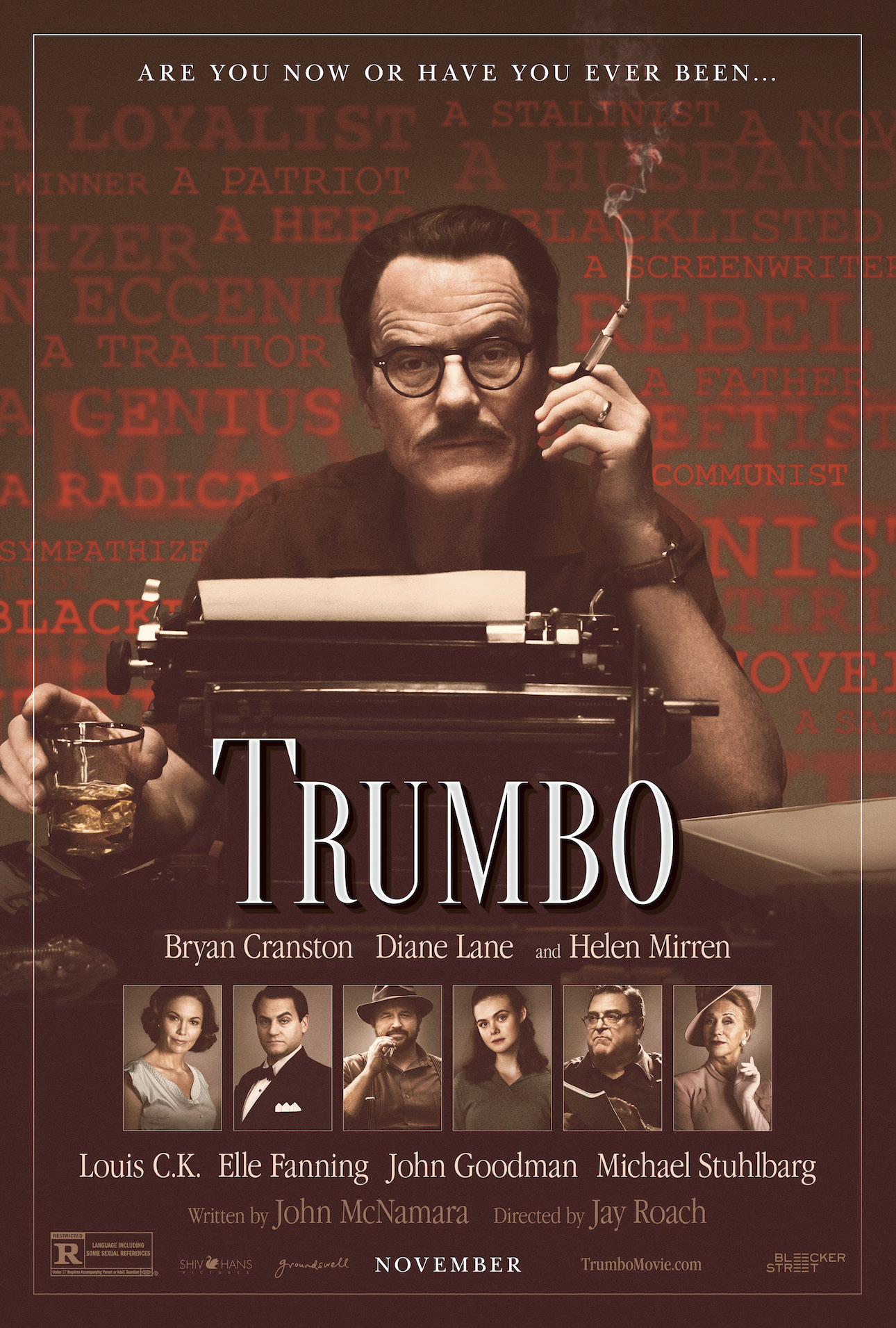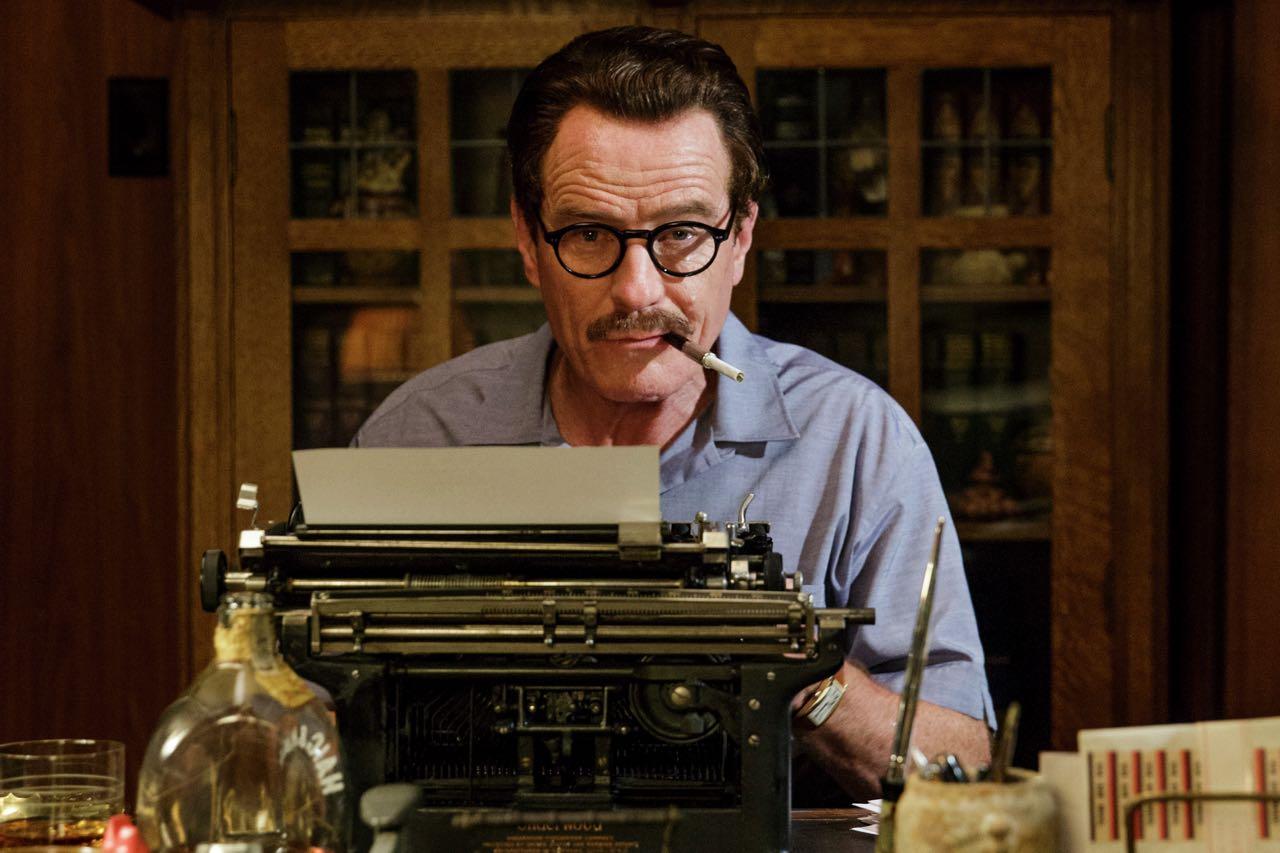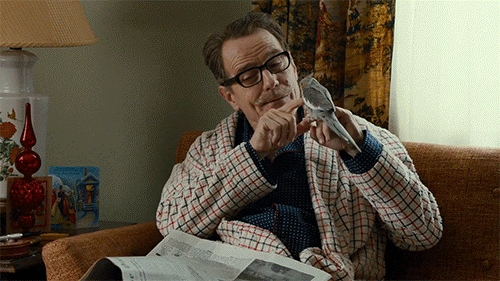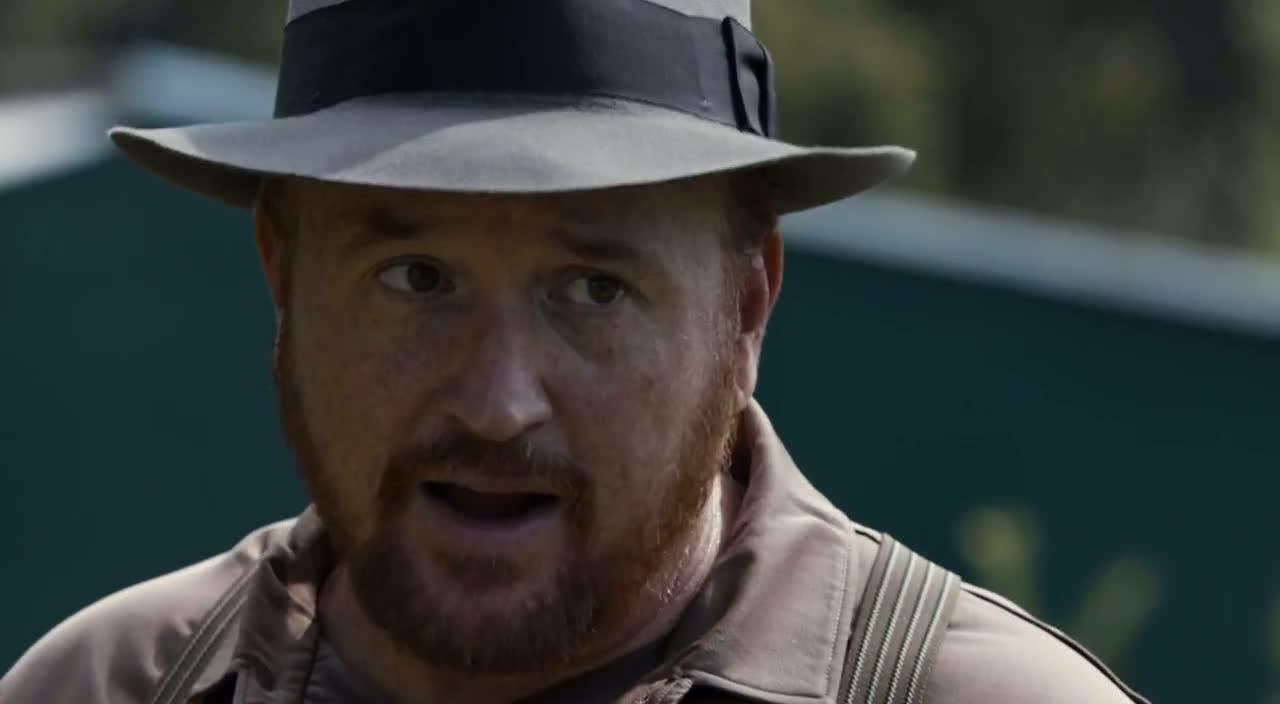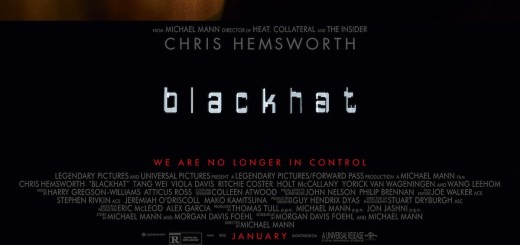TRUMBO Review
Director: Jay Roach
Genre: Biopic
While filming SPARTACUS, Kubrick was not allowed to touch the script, which he claimed was “stupid and moralizing.” Trumbo is no different. A big film with a noble message, but endlessly preachy and melodramatic. A biopic on the seminal figures that were targeted during the McCarthy witch-hunts was bound to crop up in the awards season at some point or another, especially when considering how rarely this niche era has really been explored cinematically. TRUMBO is the pinnacle of ticking off the respective boxes in order to be a critics darling, softly stroking the erect ego of Hollywood’s finest. But with nearly every fascinating true story comes another trite biopic, and although TRUMBO does its utmost to show that it has more going for it than witty screenwriter banter, it falls into every genre trap that the textbook biopic falls into.
“Goodnight…moon…goodnight…stars…”
Despite its two-hour runtime, TRUMBO is a lighthearted, colorful experience with a big heart, and although it never really gets boring, it also never gets particularly exciting. Capitalizing on all of his forehead wrinkles and sporting a caterpillar-sized mustache, Bryan Cranston puts on a powerful performance as the film’s titular protagonist, but often succumbs to theatrics that start to wear out their welcome after the sixth time he waxes philosophical and belts a hunchbacked yell. Cranston is most successful during his quieter monologues, and his physical interactions with his loving family, glowing with a bittersweet pride when he wins an Oscar that he cannot accept.
“It’s a beautiful day in this neighborhood, a beautiful day for a neighbor…”
The supporting cast is a toss-up between strong performances and underwritten characters. Most individuals fall flat due to their overt irrelevance to the greater narrative. John Goodman is the clear highlight, putting on a fantastic performance as a low-budget studio head, and Michael Stuhlbarg does a fantastic job delivering the best performance he can with what he’s given, but the lack of higher stakes make his redemptive arc fall disappointingly short. What’s unfortunate is that it’s obvious what director Jay Roach was trying to accomplish with his supporting cast, representing everyone from victims to bystanders of the witch-hunts, but never tackling the emotional drama with enough weight to make it as thrilling as it ought to be.
Perhaps the greatest letdown is that Louis C.K is blatantly sidelined halfway into the film, a narrative decision that ultimately undermines the tragedy of what the witch-hunt victims went through. C.K comes across as an actor who was brought on board to punch up the dialogue of a lackluster supporting role, ultimately turning the character into a 1940’s manifestation of the comedian himself. While this isn’t boring, it’s oddly self-referential, resulting in dialogue beats in which C.K points out the obnoxiously moralizing speeches that are delivered day-in, day-out by Cranston on-screen. Near the end of the film, Cranston states that the Academy Awards are covered in the blood of his friends, but this information is never directly relayed to the audience visually, and even his years of incarceration never feel as difficult as they should. Elle Fanning is another painfully prophetic character, only adding to the slew of needlessly philosophical rhetoric. Yet, small performances here and there make up for a number of these letdowns. Diane Lane, Christian Berkel, Dean O’Gorman and Helen Mirren all compensate for the actors that fall short of expectations thanks to lighthearted performances that clearly delineate the lines between good and evil in an extremely comic-book fashion
The spin-off where he founds The Comedy Cellar writes itself
What can surely be said in TRUMBO’s favor is that despite its shortcomings, it is a film that upholds an important ideal of how to bring about change in the modern world. With a steadfast mentality that sticking to your guns but losing isn’t the right way to solve a problem, TRUMBO revels in the importance of playing into an enemy’s cards. As Cranston says early on in the film, “The radical may fight with the purity of Jesus. But the rich guy wins with the cunning of Satan.” It’s a fascinating narrative device and Roach makes a compelling argument in its favor as the film culminates.
Unfortunately, Roach also sticks to every narrative beat that has worn out its welcome in the endless crop of modern biopics, and even as TRUMBO ends with an eloquent monologue, one can’t help but feel that the entire experience is frustratingly by-the-book. The general rule of thumb ought to be that if a scene is featured in WALK HARD: THE DEWEY COX STORY, it probably shouldn’t be in a serious biopic anymore, and yet TRUMBO incorporates a large majority of these plot beats. Is it preachy? Yes. Is it melodramatic? Absolutely. Nonetheless, where some may see a waste of two hours, others might glean some important information on political change and rebellion. Objectively, Trumbo isn’t a great film, but it’s certainly noteworthy.
Verdict: Do Not Recommend

